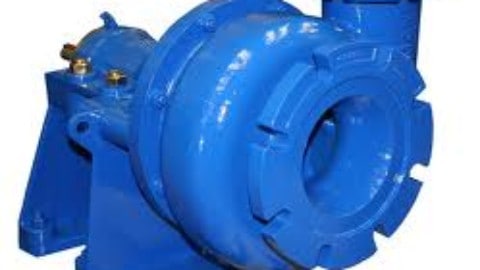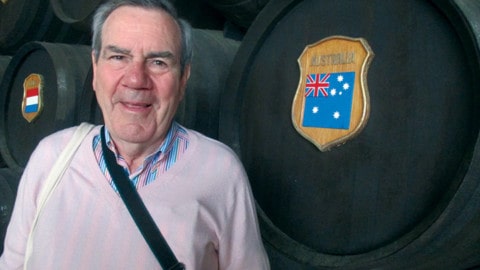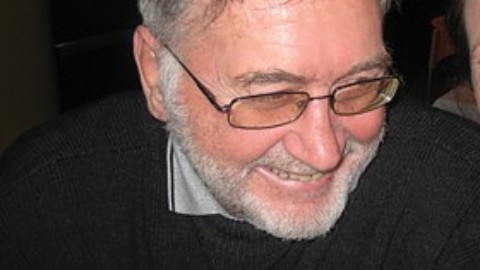In the ongoing Pump Pioneer series, Chris Bland catches up with some of the legends of the industry to get their perspectives on pumps. This edition, we speak to Antony Grage, a life member of PIA. In 1986, having left his first employer (after 23 years) in the road transport equipment industry, looking for a job with an Australian manufacturer, Antony joined Thompsons-Byron Jackson as Sales & Marketing Manager shortly before its amalgamation with Kelly & Lewis, which formed Thompsons, Kelly & Lewis.

Antony in 1987
Antony stopped working at 68, and now at 72 has recently got a part-time job helping a small industrial company with the international marketing of their emergency flashing beacons.
“Nothing to do with pumps, but still sold by the kilo. However, I enjoy going to some of the PIA meetings and to the annual dinner.”
I asked Antony how he first got started in the industry; “having worked for a company importing and distributing industrial equipment, my only criterion for a new job was to work for an Australian manufacturer of industrial machines; I believed that, even in heavy industry, machines could be sold by value per kilogram so the type of machine didn’t really matter.
“I joined Thompsons-Byron Jackson in 1986 as Sales & Marketing Manager shortly before its amalgamation with Kelly & Lewis, which formed Thompsons, Kelly & Lewis (generally known as TKL). I knew a bit about hydraulic power transmission and the job I got happened to be with centrifugal pumps, and that turned out to be an unexpected bonus.
“Whilst only working for the one pump company, it really became a series of changing organisations as Thompsons took over Kelly & Lewis and then Ingersoll Rand Pumps. Also, after many years of working with our minority owner Dresser Pump Industries, which itself became Dresser Rand and then Flowserve Pump Division, TKL was eventually acquired by Flowserve so you might say I worked for at least four pump companies over 22 years.

Thompsons EC high-head pumps installed in 1993 at the Bryn Estate Waterworks, New Norfolk, Tasmania. This was a typical “mech-and-elec” supply and install contract for TKL.
What do you like about the pump industry?
“There are many things that I found fascinating about the pump industry. I like the touch of mystery attached to the technology of centrifugal pumps, and the manufacturing processes required for their complicated shapes.
“I was intrigued that so much energy could be transformed by such a relatively small machine, compared with the size of its driver. I particularly enjoyed working with customers on their wide range of applications: from irrigation schemes, to high-energy power station and oil refinery pumps, and the rugged mineral processing machines.
“Site visits took me all over the world, and negotiating contracts to achieve the best solution was always an exciting challenge.”
What is your most memorable moment from your career?
“Two episodes stand out – you could hardly call them moments, as they evolved over quite long periods. One was winning and supplying a contract with Kvaerner Engineering of Norway for the majority of the pumps on the Woodside “Endeavour” offshore production and off-loading vessel. This is memorable because it was the largest order the company had ever won, and it taught us to work with an international contractor on a complicated job involving sophisticated metallurgy. Our contract management took a step increase in capability, which was of great benefit in administering future contracts.
“The other is being instrumental in the acquisition of a partly-developed range of slurry pumps, and then being involved in developing the complete range and marketing it to mining operators in Australia, and eventually in overseas mining regions from South America to Russia to Africa.
“The attraction of slurry pumps is in the speed with which they wear the wet-end components, ensuring a continuing stream of replacement parts. We saw that the world slurry pump market was dominated by the Australian manufacturer Warman, and we decided that there was an opportunity in being an alternative supplier to the market leader.”
Did you have a mentor during your time in the industry?
“Bill O’Hehir was the managing director when I joined TKL in 1986, and he was already planning to retire in 1971; my office was next to his, and for all of those five years he taught me the intricacies of management – to change the things you could change, to accept those that you couldn’t, and to bet only on the things you knew were certain. He was an exemplary mentor.
“We had an excellent management team at TKL, remarkable for the mutual respect each of us had for the others’ various functions, for the way we worked to achieve an outcome once a decision had been taken, and for the humour that came out in every meeting. The faces didn’t change very often during my time: Bill Coulter took over from Bill O’Hehir as managing director, Les Shearer took over from Coulter as manufacturing manager, Chris Vickers took over from Malcolm McGibbon as engineering manager, and George Milford was finance manager for longer than I was sales manager.
“We’ve all retired now, but most of us still meet for lunch every few months. I also enjoyed being involved with PIA (and its predecessor APMA) as it gave one such a good insight into what was happening in the industry, and we had a lot of laughs at those meetings, too.”

“TKL exhibited at the first Pumps & Systems Vietnam exhibition held in Ho Chi Minh City in 1998. After the show we went up to Hanoi and visited a big local pump manufacturer.”
How has the industry changed during your time in it?
“Every industry evolves in such a time span. The significant changes, in my opinion, have been: firstly, the elimination of Australian import tariffs, leading Australian manufacturers to be more competitive in an open market; secondly, the corporatisation of government departments responsible for water and wastewater treatment, and for power generation, which changed a long-established customer base with very focussed government engineers to one with more broadly-experienced contractors; thirdly, the introduction of variable-speed AC pump drivers, which gave great flexibility in pump operation; and fourthly, the global amalgamations of long-established pump manufacturers, which brought Australian manufacturers into closer contact with foreign systems and products.”
What are the most significant developments you have witnessed in the industry?
“The use of computer-controlled machine tools for manufacturing, and computer-aided design and drafting for engineering. What didn’t change much is the basic technology of centrifugal pumps which from their very start, well over a century ago, have been high energy-density machines. The changes in pump design were mainly in achieving greater hydraulic efficiency, and better mechanical reliability.”
What are the greatest challenges facing the pump industry? What does the future hold for pumps?
“Pumps are the second most common rotating machine after electric motors, so the future need for pumps is assured. The challenges facing companies in the industry are to move with the changes occurring in global sourcing, and to anticipate the changing needs of our customers. In other words, the challenge is to continually try to do better what we have always been doing.”

Antony in 2012 at the PIA Annual Dinner
What advice would you give young people in the pump industry?
“Understand the Affinity Laws and the other rules governing pump selection, and listen to what your customer says he (or increasingly, thank heavens, she) needs rather than try to sell him what you’ve got on the shelf. In fact, listening to the customer’s needs invariably makes the difference in winning a contract at the best (and I don’t mean lowest) price. It’s a vital sales technique that can be taught, and is an essential part of sales training.”
In his spare time, Antony looks after his grandchildren, goes sailing and indulges his interest in aviation history. He is also restoring an old car, “and my wife and I travel together every year, and go out for coffee together every morning.”















